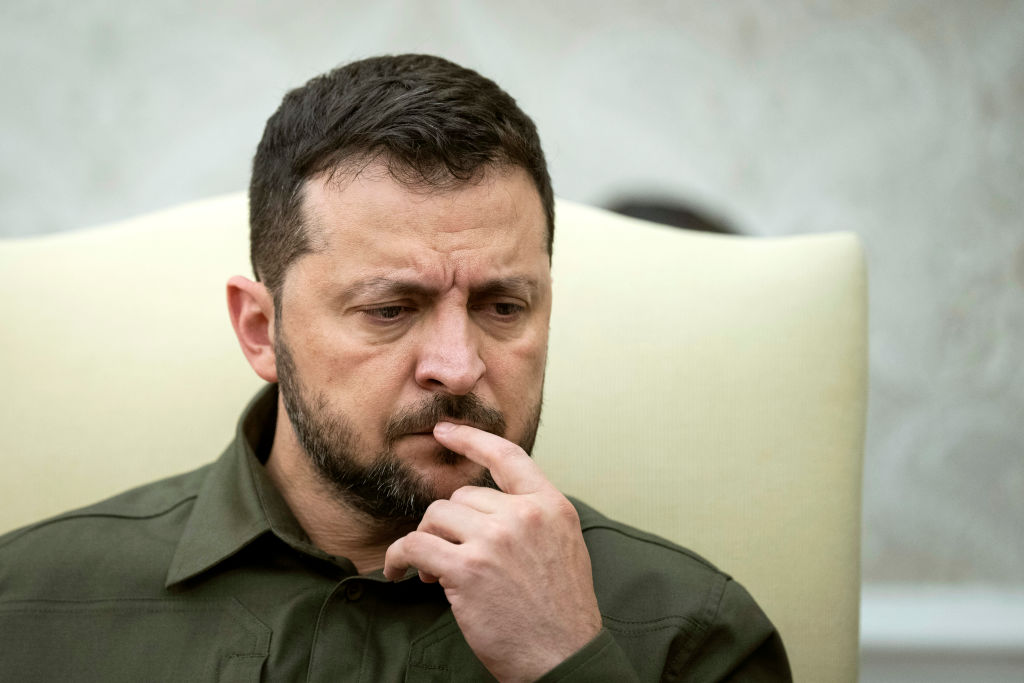War is the overriding focus of the UN General Assembly in New York, and Western momentum behind Ukraine hangs in the balance. President Joe Biden used his farewell speech to the UN to urge allies not to “let up on our support” until “Ukraine wins a just and durable peace”. Yet with the US still blocking the use of long-range missiles to strike deep within Russia, despite Ukrainian President Volodymyr Zelensky’s appeal to Biden yesterday, Western focus appears, instead, to be shifting to the need for serious peace negotiations with Russia.
The growing consensus behind a realist approach was exemplified by Czech President Petr Pavel in a New York Times interview published this week. Pavel, a former Nato Military Committee Chairman, said “the most probable outcome of the war will be that a part of Ukrainian territory will be under Russian occupation, temporarily.” Both sides will need to make compromises; Pavel added that “to talk about a defeat of Ukraine or a defeat of Russia — it simply will not happen.”
Calls from a president known in his country as an anti-Russian Nato hawk for Kyiv to be “realistic” are an indication of how Western opinion is shifting. In the Czech Republic, as elsewhere in Europe, those calling for Ukrainian compromise and a negotiated end to the war were long dismissed by politicians as Putin sympathisers. Now, though, the weight of popular opinion behind peace cannot be ignored. Two-thirds of Czechs would support a quick end to the war even if that means Russia keeping Ukrainian territory, while research shows a preference for Ukraine to be pushed into a peace deal over being supported to regain its land among the EU’s three great powers — France, Germany and Italy.
Like Pavel, leaders from those nations are espousing a more realist approach. Earlier this month, German Chancellor Olaf Scholz called for “getting out of this war situation faster”, urging a Ukraine peace conference “with Russia present”. Speaking to Ukrainian journalists prior to his US visit this week, Zelensky described unanimous Western support for Scholz’s position: “All our allies, including the closest ones who are on our side and always against Russian aggression, said that Russia should be present.”
Even French President Emmanuel Macron, whose stance against Moscow has hardened significantly, is now talking about the need to “rethink our relationship to Russia” within a “new international order”. Such statements imply that some form of relationship with Russia must of necessity exist after the war — foreshadowing a diplomatic solution and contrasting with Macron’s previous contempt for the “camp of pacifists” with a “spirit of defeat” on Ukraine.
In this international context, the apparently unsuccessful presentation of Zelensky’s “Victory Plan” to US lawmakers yesterday takes on even greater significance. Zelensky characterised this plan as aiming not for absolute victory and the total defeat of Russia, but for “a bridge to a diplomatic way out”. Yet if Washington remains unmoved in refusing to expand the scope of its military support, Western momentum may swing more firmly in the opposite direction. If it does, Zelensky will have to consider the compromises he is prepared to make as part of a peace deal.
If support continues to grow for diplomacy rather than a continued war in Europe, politicians would be aligning their priorities more accurately with the views of their electorates (though potentially not in Ukraine’s best interests). In describing Ukraine’s probable need to cede territory, Pavel may now be saying — out loud and with military pragmatism — what other European leaders are whispering behind closed doors.










Join the discussion
Join like minded readers that support our journalism by becoming a paid subscriber
To join the discussion in the comments, become a paid subscriber.
Join like minded readers that support our journalism, read unlimited articles and enjoy other subscriber-only benefits.
Subscribe